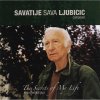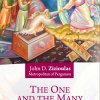Thus, already as a three year old child Ljubicic learns how to play the accordion, and a year later, how to play the piano. Most importantly, fully encouraged and supported by his loving but frail mother Marica, Ljubicic also develops an early love and devotion to music, an early dream to one day become a composer Consequently, at the age of sixteen, he already plays at school dances and, of course, continues to compose dances and songs, always expressing in them the spirit of Serbia’s countryside — its folklore and its people. So already at this age, he writes a Serbian dance, that years later, in 1966, wins him the second prize at the leading Yugoslav Festival of Folk Music held in the city of Ilidza, Bosnia.
Determined to devote his life to music, Savatije Ljubicic decides in 1948, at the age of seventeen, to move to Belgrade and in that capital City of former Yugoslavia further his music education at the music school “Stankovic” . Here he studies piano and composition. Among many compositions (various genres) that he writes while attending this school, is the FANTASY FOR PIANO IN DIS MAJOR a composition that impresses Peter Bingulac, one of the professors on the evaluating committee, that much that he predicts Ljubicic a great music career. Unfortunately, living alone in a big city, working hard at perfecting his craft and being still a teenager young enough to realize that one must take care of one’s health, this young composer’s music career is being interrupted. He is admitted to one of Belgrade’s hospitals due to a life-threatening case of tuberculosis he, as many other children in Serbia, acquired during those post WWII days.
However, immediately upon being dismissed from the hospital, Savatije Ljubièic goes back to his music, to composing Serbian songs and dances, As a matter of fact, never forgetting the encouragement the professor from the “Stankovic” music school gave him, Ejubicic devotes again all his time to music and in addition to writing Serbian folk music, in 1964 he begins to write romantic pop ballads as well. In order to support himself, with a group of experienced musicians he even plays piano in clubs and restaurants around the count. So, this is also the time when a countless number of his compositions in a variety of genres begins to be published, to be played in popular clubs and restaurants as well as on the radio and the TV stations. The songs and dances he wrote as a teenager are the ones that in 1964 pave Ljubicic the way for a brilliant music career to follow. He is beginning to get the highest recognition at the music and song festivals in the country, while the popularity of his music reaches the “gold records” sale. One of those old compositions called STARA LIPA UVELA (There Stood Once the Tree We Knew) became an “evergreen” and can still be heard in villages and towns across Serbia. Besides, from that year on, one of his dance begins to be included in the repertoire of several dance groups of former Yugoslavia, who touring the world and performing Yugoslav folk dances, including some of his, gathered highest international acclaim.
In 1966 at the Yugoslav Army’s Pop Music Festival , Savatije Ljubicic’s song DODJI S PRVOM ZOROM (Huriy Be with Me at Dawn) ) is awarded and in 1967, during the Country Music Awards, his composition VAROSANKO DEVOJCICE (The City Girl) is being the best. In 1968, at the Belgrade’s Music Festival, “LJUBICICEVO KOLO no. 2” wins him a second prize and so does in 1969 at the Belgrade’s Country Music Awards, “LJUBICICEVO KOLO no. 3”. In 1971 at the Bosnia’s Ilidza Country Music Festival, Ljubicic wins the first prize for his LJUBICICEVO KOLO no. 7 a Serbian dance that is still today being played and heard in the country. That same year his two compositions are being awarded: VRATI MI SUZE SRECE (Return My Tears of Happiness) at the Belgrade’s Competition of Best Music, while the song ZBOG RANE KOJA BOLI (Because of the Wound That Hurts) at the City of Cacak Awards an event that recognizes the most accomplished composers in the counti7 That same year, Ljubicic receives from the Yugoslav Society of Composers the highest lifetime recognition a composer in the country can get. Next year , in 1972, the city of Belgrade also gives its highest recognition to Savatije Ejubicic for his many successful years as a composer of recorded, awarded and performed music. That same year, KNJAZEVAC Serbia’s largest publisher of sheet music, publishes a music book of 10 Savatije Ujubicic’s most recognized Serbian dances.
However, this is also the year when Savatije Ljubicic wanting to broaden his musical vision of the world moves to Los Angeles. In 1972, immediately upon his arrival, Ljubicic writes two songs for the San Pedro soccer club “Slavia” — the songs BAS TAMO (Over There) and ZAVICAJLJ PRUZI MI RUKU (Memories of the Adriatic), The song BAS TAMO he writes with an intention that it becomes this soccer club’s anthem that celebrates brotherly love and understanding between the people of his native land and the Yugoslav Americans — an anthem that promotes pride of one’s roots. After that, in 1973 during one of his business trips to Yugoslavia, he becomes an honorary member of the prestigious Serbia’s Society of Composers, while upon his return to the USA, Ljubicic also becomes a member of ASCAP the American Society of Composers and Publishers, the SGA — the Songwriters Guild of America as well as of the SCL — the Society of Composers and Lyricists. So, it is here in Los Angeles, the USA, that fuelled by nostalgia, Ljubicic’s dream to one day compose a serious piece of music is awakened, He calls it a YUGOSLAV RHAPSODY. He wants this musical composition to express the most beautiful blend of the various folk elements only a diverse country like Yugoslavia could offer. Ljubicic wants the RHAPSODY to tell a story that would one day remind music lovers even the historians, of a specific period in his country’s history. Very much encouraged by his wife Mira Panajotovic to put into it all the rich folklore of the songs and dances he already wrote since childhood, his composition the YUGOSLAV RHAPSODY becomes a reality in 1976 a reality that today is just to remind of a once existing unity of the South EurOpean Slavs This composition had its world premiere at the Wilshire Ebell Theater in Los Angeles. It was performed by the Westside Symphony Orchestra of Beverly Hills and conducted by Bozidar Avramov This rhapsody is Ljubicic’s first venture into classical music that expresses something so typical for this Balkan country Rhythmically and harmonically this is a synthesis of different cultures, mainly the Slavic and Oriental ones, although the dominant element in the rhapsody is definitely Slavic in spirit. The work exhumes the importance of the simple things in life that the composer learned as a boy who grew up in a small town in eastern Yugoslavia the Serbia’s town of Cacak that is surrounded by picturesque farms and villages that continuously echo the singing and dancing of its proud people.
Years later while writing various film themes and songs in the pop, country, pop, Latin and smooth jazz genres and inspired by talented pianists of the world, besides the already existing orchestral arrangement of the YUGOSLAV RHAPSODY, Ljubicic completes the piano arrangement of the same RHAPSODY as well. Most importantly, in 1985 for his continuous contribution and work as a composer in his native country as well as abroad, in Belgrade Savatije Ljubicic is awarded the highest award given each year by the Society of Serbia’s Composers - THE COMPOSER OF THE YEAR 1985 AWARD. Expressing musically his love of and longing for Belgrade the capitol of former Yugoslavia, Savatije Ljubicic is in 1986 given another renowned award. His song GRADE BEOGRADE (Belgrade, Oh Belgrade) wins him the second price at the Belgrade’s Spring Song Festival. That same year he is receiving THE COMPOSER OF THE YEAR 1986 AWARD This time in addition to this award given annually by the Association of the Music Artists of Serbia, Ljubicic is also accepting the very prestigious POVELJA award - another recognition given annually by the Composers and Performers Association of Belgrade This association recognizes not only chosen composer’s creative accomplishments in the field of music, but also his contribution to society by enhancing Serbia’s musical culture and country’s traditions in one’s homeland and internationally Thus in 1987, Savatije Ljubicic is back in Yugoslavia where his song RASPLETENE KOSE (Her Unbraided Hair) is again in the finals of the Belgrade’s Spring Music Awards.
Ljubicic’s love of taking part in song festivals is also expressed in the USA, Japan and in other countries. He has never stops writing memorable melodies, With enthusiasm, he continues to create romantic ballads and up-tempo music in genres like pop, country pop, Latin, gospel, smooth jazz… At the Songwriters of Wisconsin International Music Competition, his instrumental composition LET’S DANCE MY LOVE is among the best and so is , in 2001, his instrumental composition the SERBIAN DANCE no. 2. In 2000, The Grand Slam International Songwriters Awards recognizes his country /pop song LAURA AND ME, while in 2001 the same festival honors his pop ballad SEASONS. In 2003, The Unisong International Song Contest gives recognition to Ljubicic’s SERBIAN DANCE # 1, while in 2004, the same song festival includes among the best his ballad YOU’RE ALL DANCING In 2005 this festival as well as the Billboard Music festival praise his two smooth jazz instrumental ballads NOVEMBER and LIFE AND LOVE as memorable and haunting.
Impressed by America’s enormous music talent and the great opportunity to express one’s feelings artistically, Savatije Ljubicic also wants to he in step with the changing times and the spirit of the new country. Even though being a member of ASCAP, SGA, SCL and other professional organizations, he attends UCLA in order to acquire the additional experience by meeting the most accomplished people in the music industry. While at UCLA, ASCAP awards him with a scholarship for taking a class called “Scoring Music to Film” that Eddy Manson taught. This additional knowledge encourages him to write music to be used in films and TV Recently and in addition to other projects, Savatije Ljubicic and his wife Mira Panajotovic have just written an inspirational song of Los Angeles called LA THAT’S YOU Last September, in 2006, this song is the winner in the open category of the Wisconsin International Song Festival One of the judges praises the song : “Wow! I was impressed, your song was awesome. LA THAT’S YOU song could have won in any other category in the contest. I loved it. This is the song that America should he listening to, today, right now “. Thus, having written a winning song, Ljubicic is trying to go further with this song He wants to see it on a DVD. His goal is to tale all those who love LA, who have heard of LA and those who dream about that city on a DYD tour through “the world’s most dreamed of city”, through LA. However, being a composer who goes on, in addition to the above, Ljubicic is these days also in the process of preparing songs for a new CD album containing his favorite melodies.
All in all, one must conclude by saying the following about Savatije Ljubicic’s music: His music has always been well liked, because this music is a blend of refined and universally heart-felt melodies, derived from his nostalgic and somewhat melancholy life’s philosophy of elements that in a low-keyed but romantic and a vibrant manner exude composer’s powerful and universal sensitivity for people and life around him…
AWARDS / MILESTONES
- 1948 Sava Ljubicic leaves Cacak, the town of his birth, in order to major piano and composition at the Stankovic Music School in Belgrade.
- 1948 In that school he writes his first classical composition called “Fantasy for Piano in Dis Major”.
- 1952 After his graduation and in order to make some money, he joins a band that arranged to tour the whole country.
- 1964 Begins composing romantic pop ballads.
- 1964 At the Ilidza 1964 Folk Festival, receives the 2nd prize for his Dance “Ljubicic’s Dance no. 1”.
- 1964 His folk ballad “Stara Lipa Uvela” has a gold record sale.
- 1966 Army’s Pop Music Festival declares his pop song “Dodji s prvom zorom”.
- 1967 Fall 1967 Festival , Ljubicic’s song “Varosanko devojcice” wins people’s praise.
- 1968 At the Belgrade’s 6th Music Festival his dance, “Ljubicic’s Dance no. 2” wins him a second prize.
- 1969 Fall 1968 Music Festival awards him the 1st prize for his pop song “Vrati se ponovo”.
- 1970 7th Belgrade’s Music Meet” gives him the second prize for his dance “Ljubicic’s Dance no. 3”.
- 1971 Ilidza 1971 Festival ‘s jury awards his dance “Ljubicic’s Dance no. 7 as the best in the competition.
- 1971 Belgrade’s Music Meet awards his song “Yrati mi suze srece”.
- 1971 Young Composers Festival in Cacak, gives him the first prize for a folk song “Zbog rane koja boli”.
- 1972 Ljubicic writes for a soccer club in San Pedro, California, two Songs: “Let’s Embrace” and “Memories of the Adriatic”.
- 1973 Joins ASCAP
- 1974 Receives an honorary membership of the Serbian Society of Composers.
- 1975 Ljubicic’s classical composition “Yugoslav Rhapsody” has a world premiere at the Wilshire Ebell and is performed by the Westside Symphony Orchestra, Bozidar Avramov, conductors
- 1978 This first version of Ljubicic’s “Yugosiav Rhapsody” is a perfect music to be used in any film score that would relate to former Yugoslav republics.
- 1980 The same Slovenia’s Philharmonic Orchestra records the seco classical version of the “Yugoslav Rhapsody” conductor Bojan Adamic.
- 1982 Ljubicic completes the piano arrangement of the “Yugoslav Rhapsody”.
- 1985 The Society of Serbian Composers awards Ljubicic with its highest award, The Composer of the Year 1985.
- 1986 His pop song “The Song of Belgrade” wins the second prize.
- 1986 Voted again by the Serbian Composers as the Composer of the Year 1986.
- 1986 Receives Serbia’s most prestigious award given by Serbian composers and performers. It is called “Povelja” and is given to him for his accomplishments in the field of music and for his contribution to society by enhancing Serbia’s culture and traditions in his native country and abroad.
- 1987 His pop song “Unbraided Hair” wins him at the Belgrade’s Music Festival the 2nd prize.
- 1988 – 2001 During that period, Ljubicic attended UCLA and with Eddy Manson completed the course “Scoring Music to Films”, as well as other courses that motivated him to begin besides his favorite genre the pop music, to compose ballads in other genres as well, such as country-pop, Latin, gospel and jazz.
- 2001 His Latin up-tempo composition “Let’s Dance My Love” is among the best at the Wisconsin International Music Festival.
- 2001 His instrumental composition “Serbian Dance no. 2”, now somewhat Americanized and leaning toward rock is praised and applauded.
- 2002 The Grand Slam International Songwriters Festival names his country-pop song “Laura and Me” as one of the best.
- 2002 SOWI Music Festival awards his pop song “Seasons”.
- 2003 The Unisong International Song Contest gives recognition to another of his rock instrumentals, the “Serbian Dance no. 1”.
- 2004 Same festival includes among the best his instrumental jazz ballad “You’re All Dancing”.
- 2005 Billboard Music Festival praises his two smooth jazz ballads the “November” song and the instrumental composition “Life and Love”.
- 2006 Song “LA THAT’S YOU” wins him the 1st prize at the Wisconsin International Song Festival.
- 2007 California’s International Song Festival honors his winning Instrumental up4empo jazz composition “Jahrubba” and raves about it as being one of the best.





